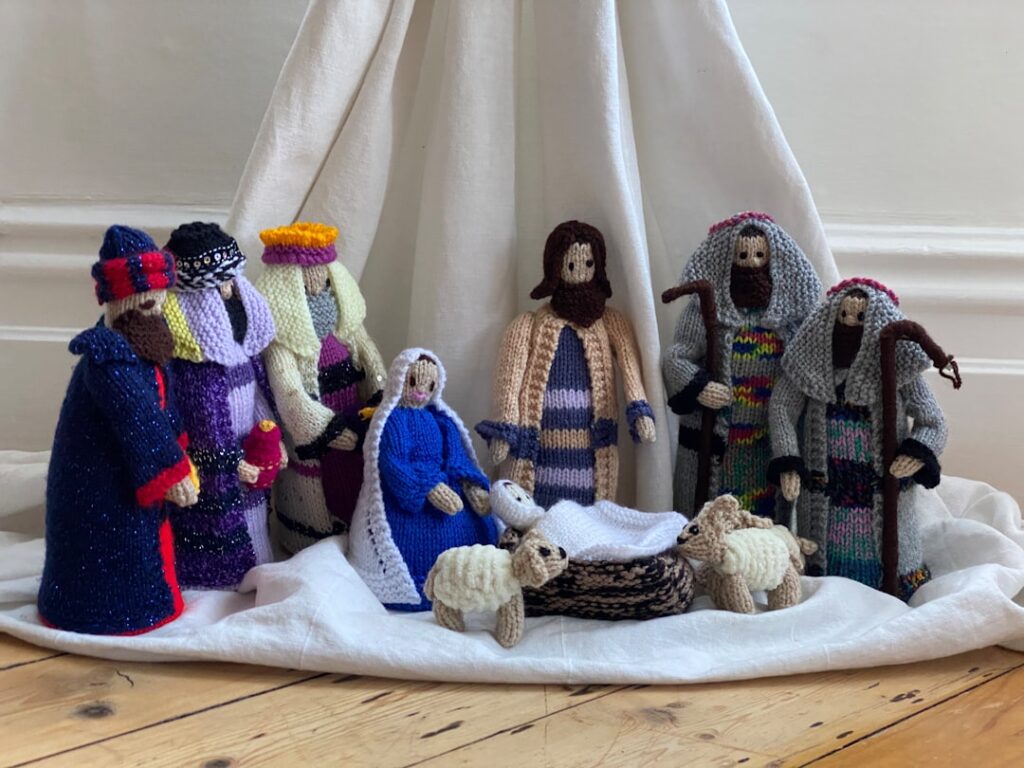 Somewhere along the way, amidst the busyness of church structures and other “welcomed” distractions, we seem to have lost sight of some of the gifts of the Holy Spirit and also of a simple but profound role that was birthed in the early days of the Church: the deacon. I wonder if it’s a challenge that we need to consider and act upon next year—or perhaps the year after.
Somewhere along the way, amidst the busyness of church structures and other “welcomed” distractions, we seem to have lost sight of some of the gifts of the Holy Spirit and also of a simple but profound role that was birthed in the early days of the Church: the deacon. I wonder if it’s a challenge that we need to consider and act upon next year—or perhaps the year after.
Under the microscope, the word deacon is our translation of a word meaning servant. It’s not doulos (slave), so already we have an insight—deacons have free will, meaning they can choose to serve rather than having an obligation. These weren’t powerful executives or decision-makers. They were something far better—humble, Spirit-filled servants who modelled the way of Jesus in practical, down-to-earth ways. They were examples for the entire Church, including elders, apostles, prophets, and evangelists.
So, the question arises: should we bring them back? And, if so, what would it look like for the Church today?
Acts 6: The Story of Deacons
Acts 6 tells the full story. The fledgling Church was exploding with growth—thousands were coming to faith—but with growth came tension, and not just the kind we might expect. It wasn’t about theological debates or power struggles—no one was holding up the ESV on mobile phones, screen-capturing and frantically pointing at a verse. It was about widows.
Widows? The most formidable and awesome time of Church growth in early history nearly ground to a halt over an issue with widows in the new family of God. The issue was that in this new family of God, yet to be called by the more familiar name Christians or church (though they already had some identity as ekklesia, meaning called-out ones), Greek-speaking widows felt they were being overlooked in the daily distribution of food, while Hebrew-speaking widows seemed to be receiving preferential treatment.
This wasn’t just an administrative hiccup—it was a gospel issue. The apostles, eyewitnesses to Jesus’ life, death, and resurrection, sensed the danger of a divided community. This was a growing community of believers who had all things in common and were giving themselves to the apostles’ teaching, fellowship, the breaking of bread, and prayer (Acts 2:42).
The apostles are impressive here—wisdom is in play. Their response is not a reactionary one; they didn’t roll up their sleeves and say, “We’ll fix this ourselves.” Instead, they recognised that their primary calling was to preach the Word and pray. So, they came up with a solution. We’re not told they prayed about this situation, but given how they were attentive to the leading of the Spirit, we can assume they did. Perhaps as a response to prayer, they instructed the church to choose seven men, full of the Spirit and wisdom, to oversee this practical work. These seven—Stephen, Philip, Prochorus, Nicanor, Timon, Parmenas, and Nicolaus—were the first deacons. Two of them unwittingly would become household names—servants with amazing testimonies, an indication of the great choice of character by the young church.
Was This Jesus’ Idea?
On one hand, we don’t see Jesus directly instituting the role of deacons during His earthly ministry, but the inference was there that this is how we should be—serving one another following the example He had given. The apostles’ decision wasn’t random. It was steeped in the Spirit-led wisdom they had absorbed from their time with Jesus—expressed in moments similar to when Jesus knelt to wash His disciples’ feet. He said, “I have given you an example, that you also should do just as I have done to you” (John 13:15). His kingdom was, and is, always about servanthood. He flipped the power structures of the world on their head, declaring that “whoever would be great among you must be your servant” (Mark 10:43). So, while Jesus didn’t say, “Go and appoint deacons,” the role of deacons flows naturally from His example and teaching. They embody the heart of Jesus—serving quietly, faithfully, and without fanfare—and they are found everywhere in the Church, some more pronounced than others.
So, deacons were chosen—but what did they do?
In Acts, the deacons’ function addressed a specific problem: the fair distribution of resources, giving much-needed attention to logistics. But it went further than that. Stephen, for example, wasn’t just a table server sorting out grandma’s dinner; he was a man of profound faith and power, so much so that his Spirit-filled witness led to signs and wonders, and ultimately to his tragic martyrdom (Acts 7). Philip, one of the seven, with angelic encounters and daughters who prophesied, became an inspiring evangelist, bringing the gospel to Samaria and even leading an Ethiopian official to faith (Acts 8).
The apostle Paul, who stood by witnessing the death of deacon Stephen, now a gospel-transformed and apostolic leader, writes a letter elaborating on the qualifications for deacons in 1 Timothy 3:8–13, emphasising character, faith, and the ability to manage their households well. Was Paul remembering, as he wrote, the exemplary character and conduct of Stephen? Interestingly, Paul also commends Phoebe as a deacon in Romans 16:1, which expands our understanding of who could serve in this role—women, too, were part of this ministry—a radical inclusion that reflects the heart of the gospel itself.
Deacons weren’t merely “helpers,” people to do menial tasks that leaders (there to serve the church) might forget in their enthusiasm. More than that, they were Spirit-filled leaders who served both the practical and spiritual needs of the community. You can look at them as the glue that held the Church together, ensuring that no one was overlooked, that the gospel of grace was embodied in tangible acts of love—and ensuring smoothness—that someone had put the chairs out, made coffee, arranged ministry mints, and brought donuts.
Why Do We Need Them Today?
Now, here’s where it gets uncomfortable—or awkward. How many modern churches have allowed their leaders to become overburdened with tasks that, while important, distract from their primary calling? How many elders are drowning in administrative details, event planning, leaving little time for prayer, preaching, and, well, leading the church?
And then there are the gaps in our care for one another. How many in our congregations—widows, single parents, the elderly, the marginalised—are quietly slipping through the cracks, leaving without being sent?
This is why we need deacons, not as a throwback to some ancient tradition, but as a resurgence—a rediscovery of a profoundly biblical model for ministry. There’s plenty for them to do. Deacons free up elders and leaders to focus on their primary calling, while ensuring that the Church’s life together reflects the gospel’s radical inclusivity and care—and they do it in a way that elicits thanksgiving and praise to God as the glorious church is unveiled, mirroring the splendour and majesty of God. Deacons step into the messy, unglamorous work of loving people where they are—whether that’s doing the modern culture equivalent of delivering meals, visiting the sick, or helping the struggling navigate life’s challenges.
Bringing back deacons isn’t about creating another committee or adding more rotas or layers to the Church’s organisational chart. Who honestly wants that? It’s about reclaiming the heart of what it means to follow Jesus.
Moving forward—sooner rather than later, and if you are convinced—look for individuals in your church who already embody these traits: people full of faith, wisdom, and the Spirit. It won’t happen by itself. Equip potential deacons with both practical and theological training, and be intentional; let their commissioning be a visible, celebratory moment for the whole church. It really is valuable not to limit deacons to in-house needs—”the boring stuff.” Challenge them to lead outreach efforts—feeding the hungry, advocating for justice, or serving in disaster relief, prayer meetings, or even hosting encouragement home meetings, stirring up the gifts of the Spirit and other life-imparting small gatherings.
Time to Finish
Imagine a Church where no one is overlooked, where the practical and spiritual needs of the community are met with joy and generosity. Imagine a church where elders, leaders, and other ministries are free to focus on prayer and the ministry of the Word because a team of Spirit-filled deacons is ensuring that the hands and feet of Jesus are active in the church family.
This isn’t just an Acts thing. It’s a gospel thing. It’s a Jesus thing. It’s a call to reclaim the servant-hearted, Spirit-led, grace-filled way of life that Jesus inaugurated. The question isn’t whether we need deacons. The question is not: will we heed the Spirit’s leading and raise them up—but how on earth did we get along without them?
It’s time to bring back the deacons.






